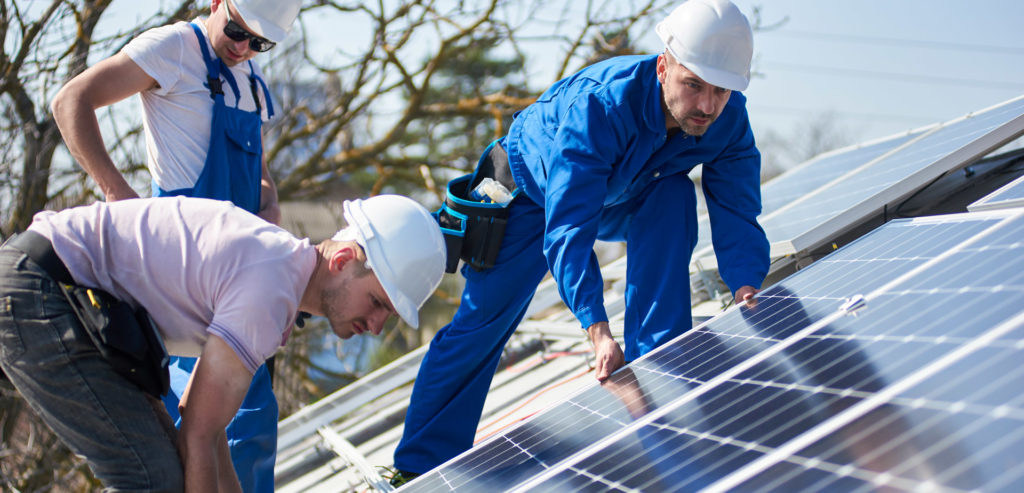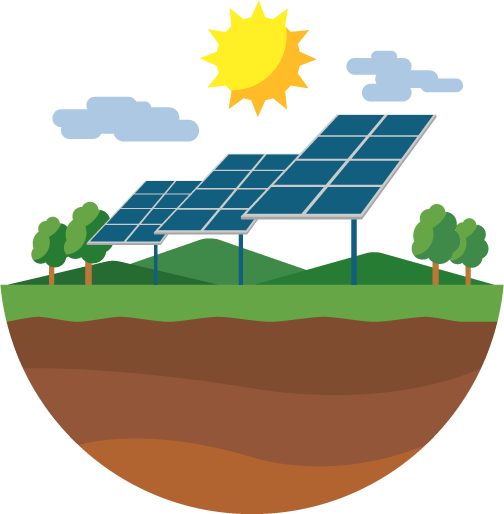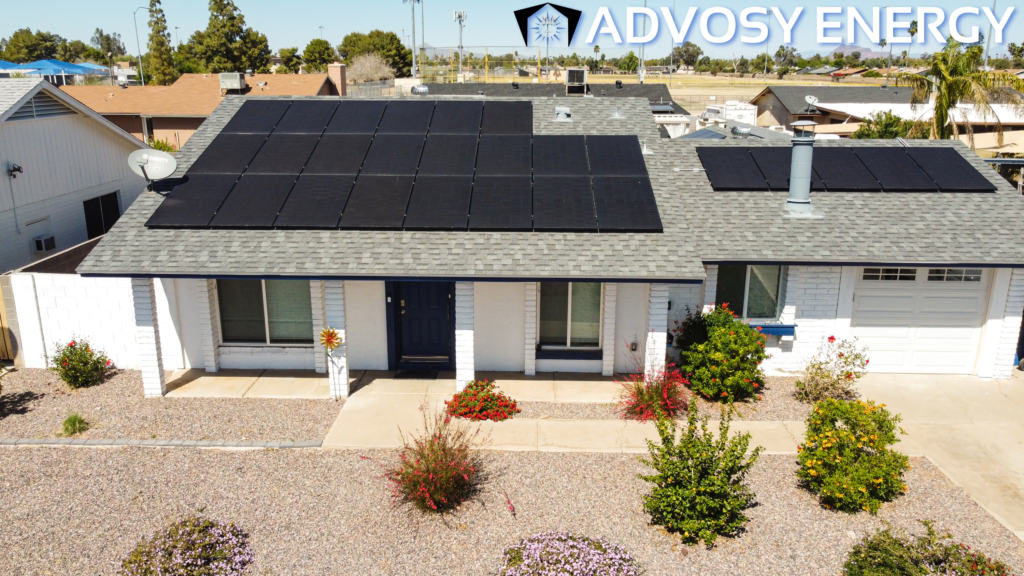Going off-grid is an attractive proposition for people who want to become more energy independent. Solar panels are a viable option, providing clean and renewable energy without the need for grid access.
This article explores the possibilities of going off-grid with solar panels, looking at the practicalities and considerations that should be taken into account when making such a decision.
The use of solar power has grown considerably in recent years, thanks to technological advances which have allowed it to become increasingly affordable and reliable as an alternative source of energy.
1. Advantages Of Going Off-Grid
The idea of going off-grid is increasingly attractive to many people today. Going off-grid refers to disconnecting from the electric grid and relying on renewable energy sources, such as solar panels, for electricity generation. This approach has numerous benefits, including reduced environmental impact and increased energy independence.
Using solar power instead of traditional energy sources can help reduce emissions that are harmful to the environment. Solar panels are able to generate clean energy without burning fossil fuels or other nonrenewable resources. Furthermore, they require minimal maintenance and have long lifespans which makes them a cost-effective choice for those looking to save money in the long run.
Additionally, using solar energy does not contribute to noise pollution or chemical contamination like some other forms of electricity generation do. By investing in solar panels, individuals will be taking an important step towards improving their local environment while also reducing their reliance on utilities companies and foreign imports of fuel sources.
2. Cost Considerations Of Solar Panel Systems

The use of solar panels to go off-grid can be a cost effective investment. Initial installation costs may be high, but the long term savings on energy bills and other utilities provide an attractive return on investment over time.
Furthermore, with advancements in technology and production processes, prices for solar panels have been dropping year by year making these systems more affordable than ever before.
When considering the purchase of solar panel equipment it is important to factor in all associated expenses including setup fees and any government incentives which may be available.
Consumers should also research different suppliers for competitive quotes as well as seek out local contractors who are experienced with installing such systems.
Taking into account total cost savings versus initial installation costs will help inform decisions regarding whether or not going off-grid is the right choice.
3. Practical Implications Of Going Off-Grid
Going off-grid is a lifestyle choice that has become increasingly popular in recent years, and one of the most effective ways to achieve this goal is through the use of solar panels. This type of alternative energy can provide ample electrical power for gridless living without relying on traditional sources.
As such, it’s important to understand the practical implications of using solar panels when going off-grid. When considering if solar panel usage is feasible for your needs, there are some key factors to consider. First and foremost, you will need sufficient space for installation – not only enough roof or ground area but also access to sunlight throughout the day.
Additionally, you should think about how much electricity you typically consume as well as budgeting for purchasing necessary components like batteries and inverters. It’s also essential to research local regulations related to installing solar panels before making any decisions.
While making an informed decision requires careful consideration, utilizing solar energy to go off-grid offers several benefits that make it worth exploring further. For example, its cost-effective nature allows homeowners or businesses to save money while reducing their carbon footprint at the same time.
4. Battery Storage Solutions
The ability to go off-grid with solar panels is dependent on the availability of battery storage solutions. These allow for energy that has been collected from solar panels to be stored, allowing it to be used at a later time when sunlight may not be available.
Battery life span is an important factor in choosing the right battery system; high quality batteries are capable of sustaining many years of usage and resist damage from power surges. The capacity of such systems should also be taken into consideration; if needing enough power to run several large appliances simultaneously, then multiple batteries will need to be installed or one larger one employed.
Depending on individual circumstances, there are options both commercially available and those which can be built by hand in order to meet unique requirements. It is worth noting that some jurisdictions do have restrictions on what type of storage solution can be used in certain locations due to safety concerns.
Having access to a reliable source of electrical power through an effective battery storage system allows users going off-grid with solar panels to enjoy the benefits of renewable energy generation without having their lifestyle disrupted by lack of access during periods where no direct sunlight is available.
5. Benefits Of Solar Energy
Battery storage solutions are becoming increasingly popular for those looking to go off-grid with solar panels, as the latest technology allows for greater control and efficiency over the power generated.
These systems offer a number of advantages that must be weighed against their cost when making this decision.
The use of renewable sources such as solar energy is not only financially beneficial in terms of reducing electricity bills but also has a positive environmental impact.
In comparison to other fossil fuel-based resources, it is considered more sustainable due to its low carbon footprint and lack of pollutant emissions.
Solar energy can also be attained free from any external source – sunlight is abundant and available nearly everywhere.
This means that anyone who invests in solar panels can reap the rewards regardless of their location or access to the grid.
6. Regulations For Off-Grid Connections

The use of off-grid solar systems can present unique challenges and risks. To ensure safety, many jurisdictions have regulations in place for connecting to the electrical grid remotely. In order to connect an off-grid system to a utility company, the customer must meet specific requirements established by state or local governments. These requirements often include inspection of the installation and adherence to certain safety protocols that are designed to protect both consumers and utilities.
Moreover, there may be additional considerations when utilizing solar energy from an environmental perspective. Local government agencies may impose restrictions on how much power is allowed to be generated through renewable sources such as photovoltaic cells, taking into account any potential impacts on natural habitats or other ecosystems nearby.
Additionally, some areas may require customers with off-grid systems to pay fees associated with the monitoring of their installations based on the size of their system or its location relative to other residences. As a result, it is important for individuals considering going off-grid with solar panels to thoroughly research relevant laws and regulations before beginning construction.
7. Maintenance And Upkeep Of Solar Panel Systems
The importance of maintenance and upkeep of solar panel systems cannot be overstated. Installing a system is only the beginning of a process that requires ongoing attention to ensure its optimal functioning.
Regular inspections, cleaning and repairs are essential for maintaining peak energy efficiency, thus ensuring maximum energy savings in the long run.
Maintenance requirements vary depending on factors such as climate conditions, type of installation, and other environmental influences.
Any damage should be addressed immediately to avoid further deterioration of the system’s performance or incurring additional costs due to repair delays.
The components of most systems are designed to last up to 25 years with proper upkeep, so investing time and money into regular maintenance can extend their lifespan substantially.

